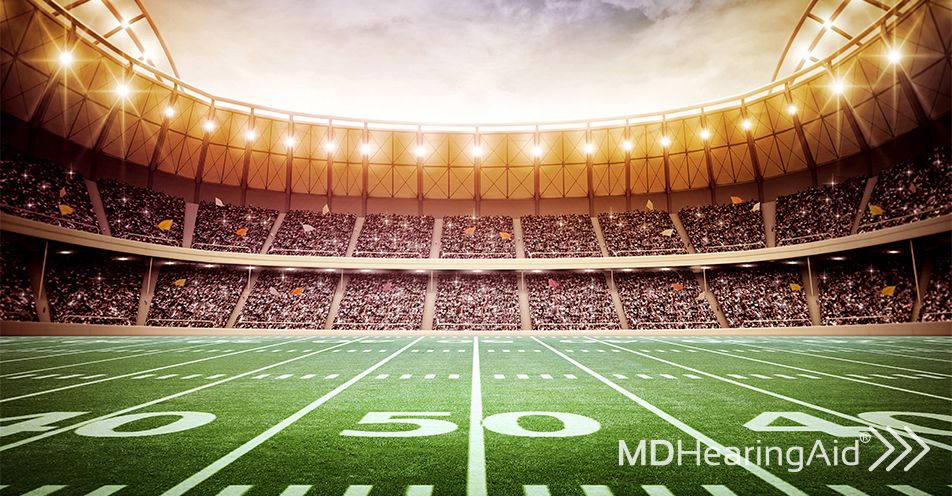This weekend, when the New England Patriots face off against the Atlanta Falcons in the Super Bowl, people in the NRG Stadium, at their local sports bars, at parties with friends, and at home in front of their TVs will be cheering in excitement.
There’s the sonic boom of the jets as they fly over the stadium right after the national anthem. Then there’s the roar of the crowd when their team scores and the cheers (and jeers) at the referees’ calls. The halftime show is sure to be an over-the-top extravaganza, complete with fireworks. On and off stage; Super Bowl Sunday is larger and louder than life.
All of this can potentially damage your hearing. Did you ever stop to think about how loud all that excitement can be and what it might do to your hearing? Ears are delicate instruments and sensitive to changes in sound levels. Simply put, decibels do damage, over both time and volume.
What is a decibel?
A decibel (dB) is a unit of measurement that indicates how loud a sound is. The higher the number of decibels, like the roar of a jet engine at 150 decibels, the louder the sound.
Human beings can hear sounds between zero and 140 decibels. Zero decibel does not mean that there is no sound, merely that it is very soft. Zero decibel is the so-called hearing threshold for the human ear. And decibel levels increase exponentially.
Consider this example: A 70 dB vacuum sound is 10-times more powerful than a 60 dB normal conversation, or twice as loud. When that sound increases to 80 dB, it’s now 100-times more powerful or 4-times louder. This continues to increase quickly, to a point where a 90 dB sound is 1,000-times more powerful or 8-times louder.
Although we can hear more than 140 decibels, it does not mean we should expose ourselves to such loud noises. Sounds over 80 dB put us at a high risk for permanent hearing damage. Sounds over 125 dB put us at risk for instant hearing damage.
How loud is too loud?
What if you already wear hearing aids? Is loud different for you? Do hearing aids make sounds louder and potentially more damaging? Not really.
A properly fit hearing aid will actually decrease loud sounds to protect your hearing. Even with hearing aids, you can do further damage to your hearing unless you take some common-sense precautions, like removing your aids, wearing additional hearing protection like ear muffs or earplugs, or avoiding the most damaging noises.
Let’s take a look at some common everyday sounds. Now consider the noise level in a crowded sports bar, the gang all hanging out at your place, or the high-volume levels inside a stadium. Even listening to the game on your mobile device can be harmful. Using earbuds to listen to music or a broadcast at maximum volume can reach a level of over 100 dB, loud enough to begin causing permanent damage after just 15 minutes!
Case in point: the roar of the crowd at Super Bowl XLVI was measured at 115dB when the Patriots scored:

Defeat the decibels
Stopping by the sporting goods store to grab team wear for the big game? Be sure to pick up ear plugs or other hearing protection. Watching the game at a friend’s house or local watering hole? Request that they turn on closed captions. It’s easier to follow the game that way without cranking up the volume on the TV.
The best seat in the house is actually the one that allows you to talk with friends, without having to yell over the TV or the crowd. And if you are a hearing aid wearer, adjust your hearing aid program setting and volume controls for the listening environment. That way, you’ll get the most out of game day without potentially harming your hearing.
Want to learn more about howMDHearing can enrich your life? Check out our line of affordable, FDA-registered hearing aids. Our team of knowledgeable hearing aid specialists are here to assist you with your hearing needs online or over the phone.
